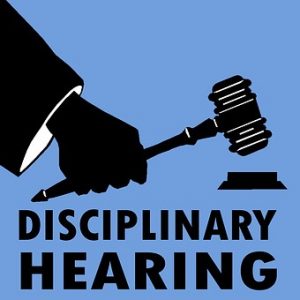Wage and hour claims dealing with overtime requirements are among the most contentious in employment law litigation. The United States Supreme Court recently issued a decision exempting one narrow class of employees (“service advisors” at automobile dealerships) from coverage. While the specific effect of the ruling is limited, the reasoning behind it may signal a shift in the way the Supreme Court interprets the exemptions from overtime requirements in federal employment law.
The Federal Fair Labor Standards Act governs wage and hour issues for most employees in the United States. Generally speaking, unless an employee is an “exempt employee” she must receive minimum wage for all hours worked, and overtime pay at the rate of one and a half times her normal pay rate (known as “time and a half”) when she works more than forty hours in a week. Broad categories of employees are exempt, however. The major categories of exemptions are professional, executive and administrative employees. Many other smaller or sub-categories of employees are also exempt.
New Jersey’s Wage and Hour Law provides similar coverage for New Jersey employees, who receive protection under both state and federal law. Both laws also prohibit retaliation against employees who file complaints about violations (although there are technical requirements about what constitutes a “complaint”), and both require the employer to pay the employee’s attorneys fees if she prevails in a lawsuit. The main difference is that the Fair Labor Standards Act provides for double damages if the violation is “willful” – this means that if the employer willfully underpaid the employee by $1000, it must pay her $2000 in damages plus reimbursing her for her attorneys fees. The New Jersey Wage and Hour Law, on the other hand, does not provide for double damages.
 New Jersey’s government employees provide a wide range of services without which the public could not survive. These range from law enforcement to firefighting, mass transit, garbage removal, building and maintaining roads, ensuring the safety of buildings, protecting the civil rights of New Jersey’s citizens, protecting the environment, traffic safety, urban planning, parks, agriculture, guarding inmates, the list goes on – in short, they affect virtually every aspect of our lives.
New Jersey’s government employees provide a wide range of services without which the public could not survive. These range from law enforcement to firefighting, mass transit, garbage removal, building and maintaining roads, ensuring the safety of buildings, protecting the civil rights of New Jersey’s citizens, protecting the environment, traffic safety, urban planning, parks, agriculture, guarding inmates, the list goes on – in short, they affect virtually every aspect of our lives. New Jersey Lawyers Blog
New Jersey Lawyers Blog


 The United States Court of Appeals for the Third Circuit recently issued an important
The United States Court of Appeals for the Third Circuit recently issued an important  The United States Court of Appeals for the Third Circuit, which hears appeals from decisions in the federal courts of New Jersey, Pennsylvania and Delaware, recently issued a major decision interpreting the scope of coverage of the federal Emergency Medical Treatment and Active Labor Act (“EMTALA”). As the Third Circuit explained,
The United States Court of Appeals for the Third Circuit, which hears appeals from decisions in the federal courts of New Jersey, Pennsylvania and Delaware, recently issued a major decision interpreting the scope of coverage of the federal Emergency Medical Treatment and Active Labor Act (“EMTALA”). As the Third Circuit explained, New Jersey has joined nine other states and the District of Columbia in enacting a
New Jersey has joined nine other states and the District of Columbia in enacting a  The Appellate Division of New Jersey’s Superior Court recently addressed a procedural question with significant implications for New Jersey teachers and other teaching staff members fighting tenure charges under the TEACHNJ Act of 2012.
The Appellate Division of New Jersey’s Superior Court recently addressed a procedural question with significant implications for New Jersey teachers and other teaching staff members fighting tenure charges under the TEACHNJ Act of 2012. enacting the
enacting the  The United States Supreme Court issued a major decision on tolling the statute of limitations on state law claims while the case is in federal court which has significant impact on New Jersey employment litigation. In the case of
The United States Supreme Court issued a major decision on tolling the statute of limitations on state law claims while the case is in federal court which has significant impact on New Jersey employment litigation. In the case of  Both New Jersey’s
Both New Jersey’s